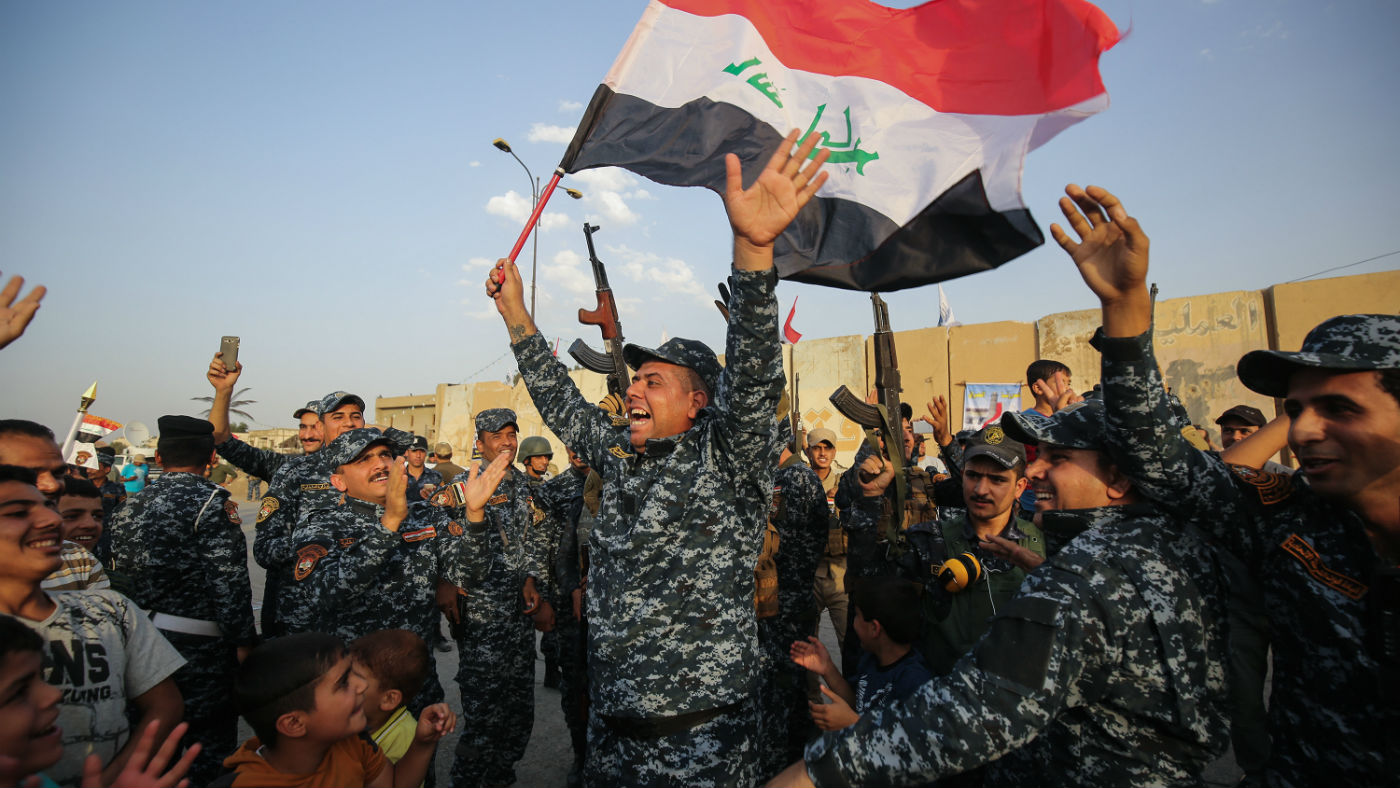Mosul liberated after nine-month battle with Islamic State
Thousands dead and a million displaced following end of bloody campaign

A free daily email with the biggest news stories of the day – and the best features from TheWeek.com
You are now subscribed
Your newsletter sign-up was successful
Iraq's Prime Minister announced yesterday that Mosul has been recaptured from Islamic State militants after a gruelling nine-month battle.
Haider al-Abadi travelled to the city to congratulate "the heroic fighters and the Iraqi people on the achievement of the major victory".
However, small pockets of fighting continued after his announcement, the Washington Post reports.
The Week
Escape your echo chamber. Get the facts behind the news, plus analysis from multiple perspectives.

Sign up for The Week's Free Newsletters
From our morning news briefing to a weekly Good News Newsletter, get the best of The Week delivered directly to your inbox.
From our morning news briefing to a weekly Good News Newsletter, get the best of The Week delivered directly to your inbox.
Iraqi soldiers fought to free the city alongside Kurdish Peshmerga fighters, Sunni Arab tribesmen and Shia militiamen, with air support provided by the US-led coalition. Mosul has been under IS rule since 2014
The announcement marks "the formal end" of a bloody campaign that has left much of the Iraq's second-largest city in ruins, killed thousands of people and displaced nearly a million more, says the New York Times.
Alan Johnston of the BBC says Iraq army has finally avenged its "humiliating defeat" by IS militants three years ago. "But victory has come at a terrible cost."
Survivors have been without food, water or medical supplies for weeks, Al Jazeera's Charles Stratford reports. "Many of them are malnourished and seriously dehydrated," he says. "Very many of them are deeply traumatised by the months they've spent hiding in their homes."
A free daily email with the biggest news stories of the day – and the best features from TheWeek.com
Schools, hospitals, and mosques have been destroyed by the relentless bombing campaign and the UN estimates it will cost the government more than $1bn (£776m) to repair basic infrastructure.
While the loss of Mosul is a major blow to the militant group, "we should not view [it] as the death knell for IS", says Patrick Martin, Iraq analyst at the Institute for the Study of War.
The group is still in control of smaller cities and towns in Iraq, as well as larger territories in Syria.
"Iraqis expect an increase in terror attacks in urban centers, especially in the capital, Baghdad, as the group reverts to its insurgent roots," the New York Times reports.
There is also the fear that many IS fighters who were not captured or killed have "simply put down their guns" and blended in with the civilian population, the newspaper adds.
Zuhair Hazim al-Jibouri, a member of Mosul's local council, warned: "Most of the IS fighters have shaved their beards and took off their clothes and now they are free."